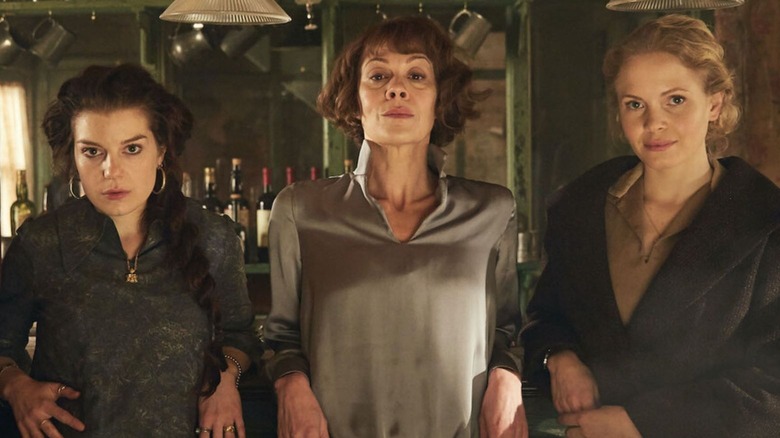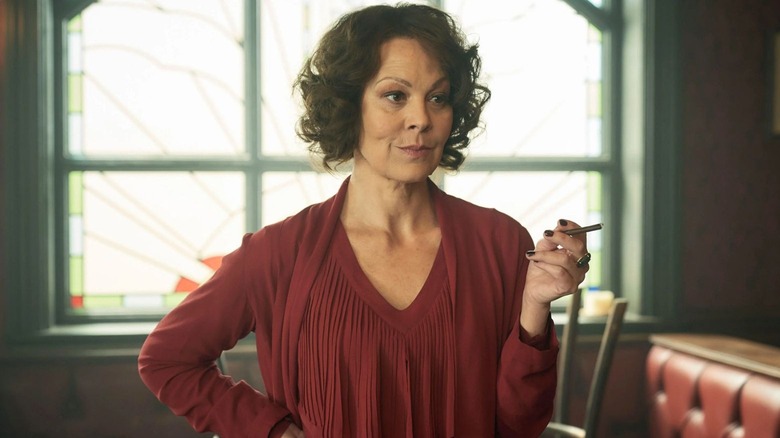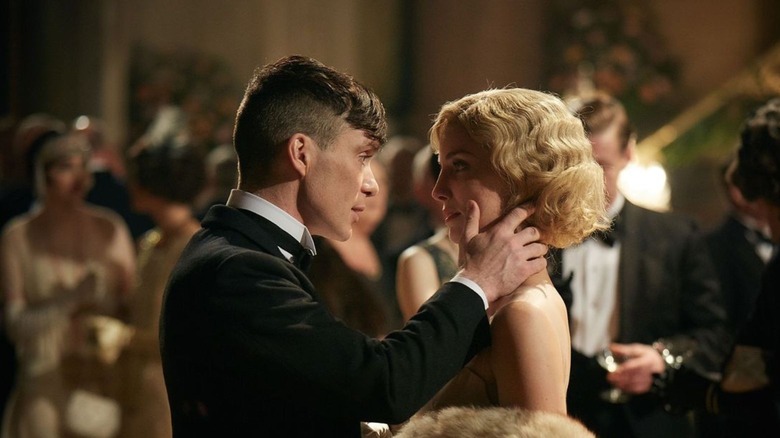Why Steven Knight Wanted Peaky Blinders' Ladies To Be Just As Powerful As Its Men
Steven Knight's period crime-drama series "Peaky Blinders" is loosely based on the real-life story of the brutal Birmingham-based street gang of the same name. The characters in the show fight for authority and dominance, and the tussle for power has got many of them in trouble.
In "Peaky Blinders," ambition and ruthlessness form the very foundation of the values of the characters — from Tommy's standing as the intelligent, all-consuming antihero to his brother Arthur's impulsive, thrill-seeking and loyal persona — even the women in "Peaky Blinders" are as powerful and resourceful as their male counterparts. Season after season, members of the Shelby family have continued to expand their empire and spread their influence. When creator Steven Knight conceived the show, he wanted his female characters to be on par with the men — they both needed to be powerful and capable of asserting authority.
Men and women work together in Peaky Blinders
When "Peaky Blinders" began, the show was set in the aftermath of the First World War. Historically at the time, women took over an integral position in working-class communities and began working in the factories, after men left to fight in the war. Long before the men returned, women were already successful at running jobs, households, and workplaces. The war led to the social advancement of women, with employment opportunities increasing, they were able to overcome prejudice and take their rightful place in society as members of the country's working force.
When the war ended, The Restoration of Pre-War Practices Act (via BBC) forced thousands of women out of their jobs, giving soldiers returning from World War I their old jobs back. Knight wanted "Peaky Blinders" to reflect that men and women both exerted equal control in the industrial sector — and ensured his characters worked together. Whether it's the compassionate, pragmatist Aunt Polly (played by late actress Helen McCrory) or the keen, observant Grace Burgess (Annabelle Wallis) — every character had their agenda each season.
In an interview with Radio Times, Knight explained how it wasn't a surprise to see headstrong, intelligent women in the Shelby family and otherwise rise to the top of their ranks.
"In the period after the First World War, women were incredibly powerful in working-class communities ... while the men were away at war, the workplace – including illegal gambling rackets – had been run perfectly well, if not better, by women. But when the war was over, legislation was passed saying men must once more be preferred over women for jobs, and women were quite rightly baffled by the idea they were suddenly being told not to work."
'It's in the natural order of things'
Knight continued, stating how Tommy Shelby (Cillian Murphy) believed that intelligent people made decisions for others to carry out — and gender had nothing to do with it.
"I wanted to reflect that – and do justice to those women. Tommy, to his credit, doesn't care if it's a man or woman doing what needs to be done; he sees it's in the natural order of things for smart people to make the decisions and for less smart people to carry them out. So it's not at all surprising that, in a family like the Shelbys, strong, intelligent women would rise to the top."
"Peaky Blinders" triumphed throughout its six seasons — the critically-acclaimed series charmed viewers worldwide during its initial run and found a larger audience after its Netflix debut. The show has been praised for mythologizing the British working class and shining a light on their struggles in a way that has never been done on television before. Knight is continuing to work on stories set in the "Peaky Blinders" universe — a film is currently in the works.


